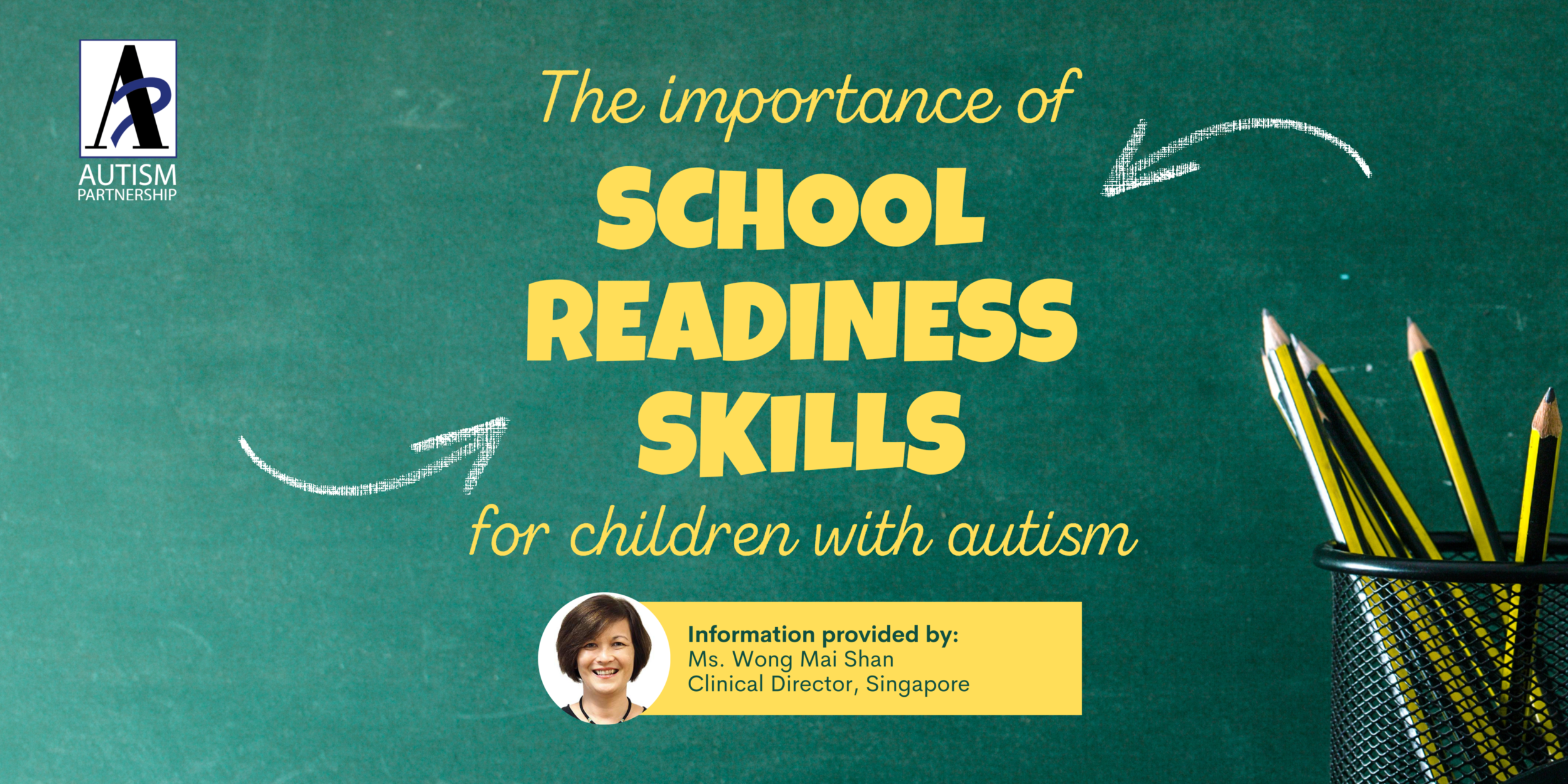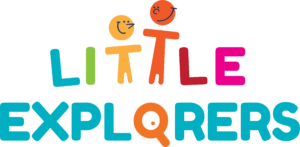Preparing Children with ASD for School:
What are some skills I should teach my child with ASD to prepare him for school? What are school readiness skills? Why is it important to prepare my child with autism for school?
For parents, making decisions about going to school can be exciting, but it can also be stressful at the same time! Additionally, parents often have uncertainties and ask questions: Is my child ready to go to school? Would my child have a difficult time adapting?
One of the most important factors determining a child’s success and growth in school is their School Readiness Skills. School Readiness Skills go beyond academic skills and cognitive development, which are essential, but it also includes emotional, social, and physical development. If these areas are very intact for children who do not face any particular learning challenges, their academic journey will likely be smoother.
The same skills also apply to children with autism. However, due to their abilities and challenges, most children with autism will need to work on other critical areas to prepare for school, besides the skills mentioned above.
In this article, we will explore these critical areas in school readiness skills for children with autism. In preparing students with autism for school, we should also address and equip them with the following critical skills:
School Readiness Skills for Children with ASD
1. Managing Behaviors
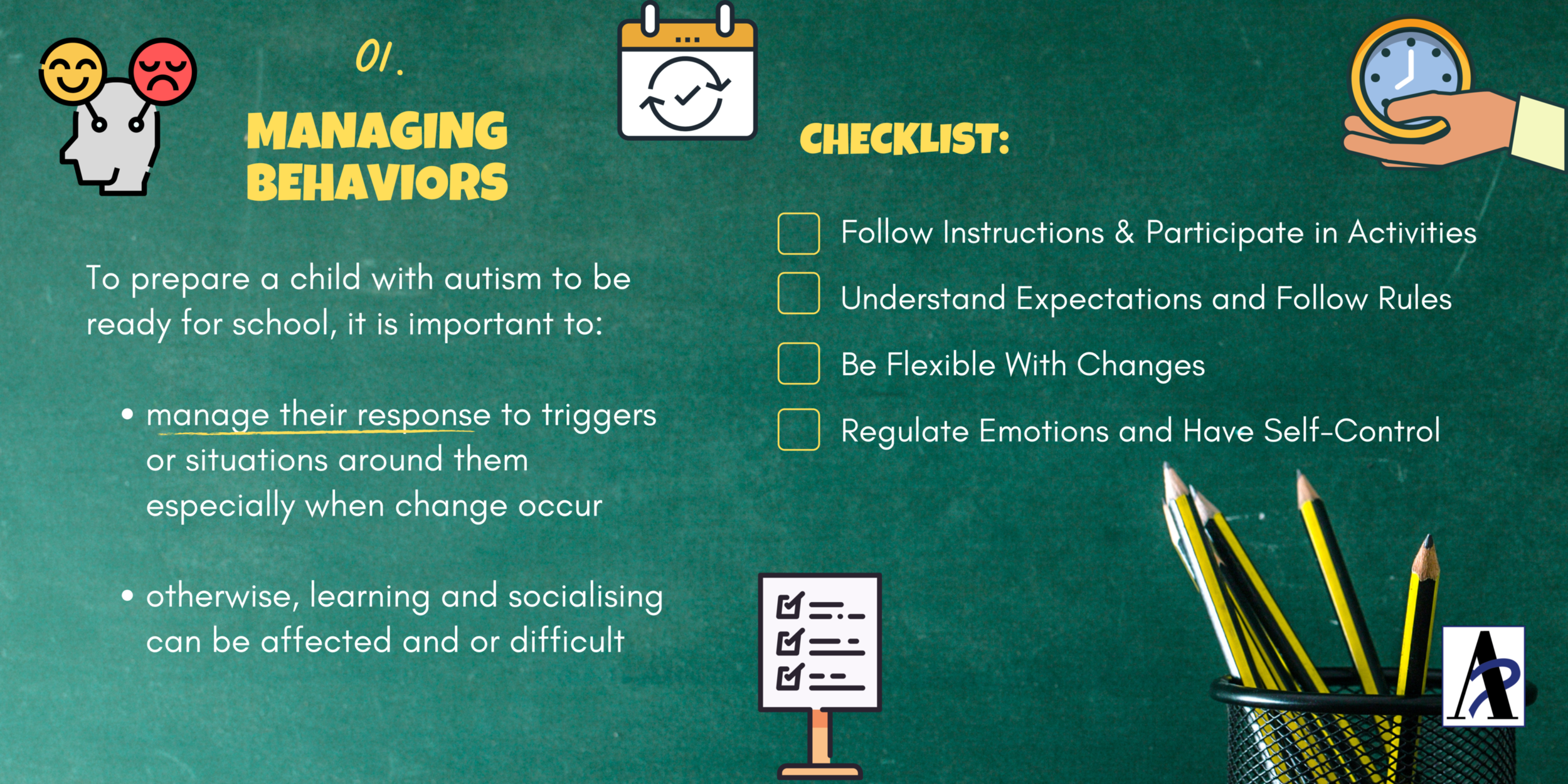
Commonly, children with autism may display behavior such as tantrums, aggressiveness, or withdrawal as a response to triggers or situations around them. Stereotypical behaviors can also be exhibited, such as flapping hands, repeating phrases, etc. Individuals may display these behaviors when bored, overwhelmed, nervous, or happy. Such behavior will inevitably ‘stand out in a crowd of people who do not understand autism and behavior, resulting in stigmatization, which unfortunately affects socialization in school.
In addition to socialization being affected, learning can also be difficult when a child is unable to manage and deal with triggers in their environment. For example, a child who is not tolerant of change can get very upset when a change occurs. As a result of not knowing what to do, a child may engage in disruptive behavior (e.g., tantrums) in an attempt to cope. Because of this, the child is under a lot of stress, making it hard for the child to learn and have a positive experience at school. It may also be challenging for school teachers to assist the child and handle the rest of the class concurrently.
The good news is that we can teach children how to manage triggers in their lives to cope better in school. Therefore, managing challenging behaviors is crucial in school readiness preparation.
Read articles on Behavior Management:
2. Self-Help Skills
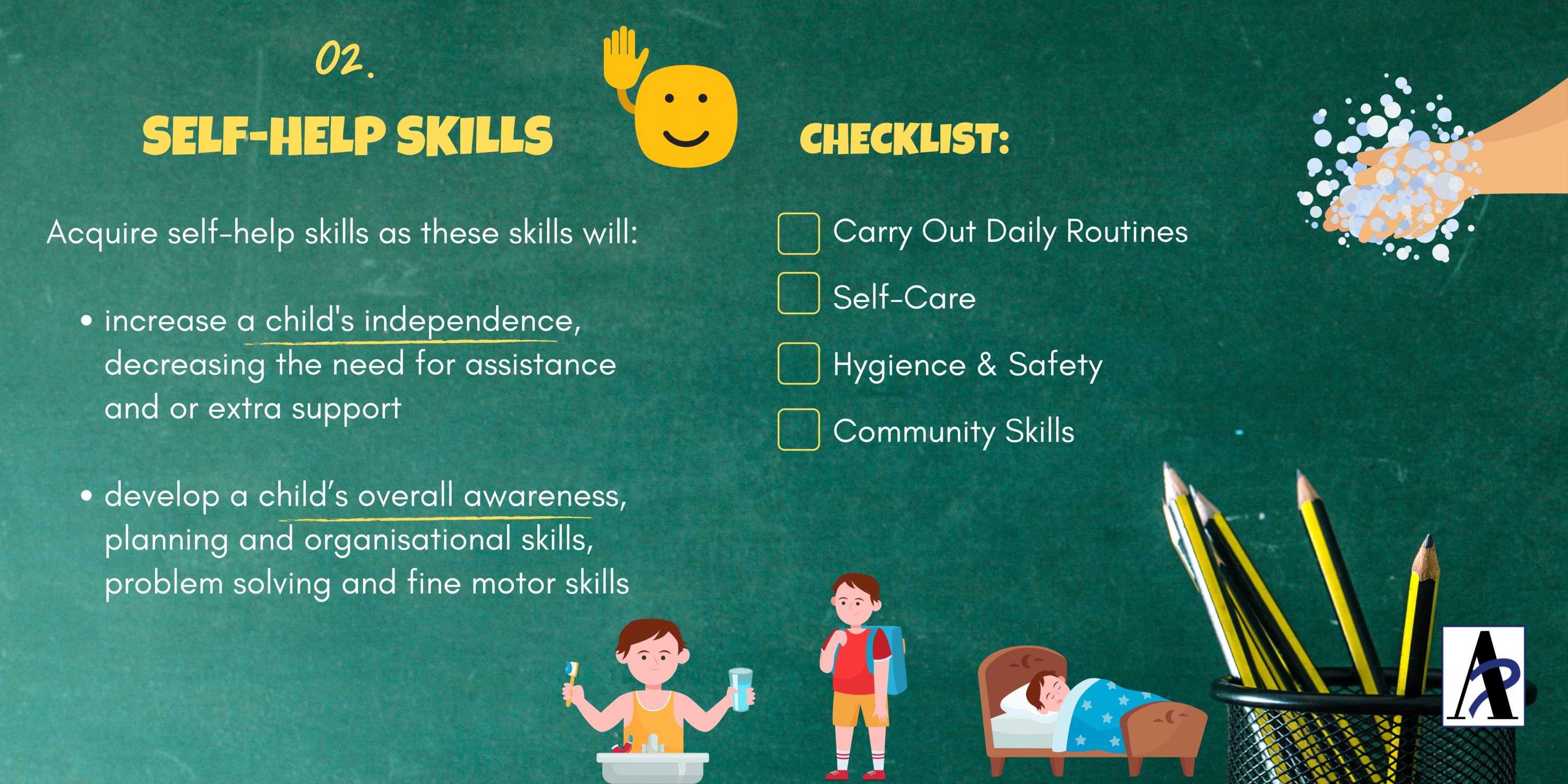
Children have a desire to be independent. The ability to do things on their own boosts their confidence, self-esteem and reduces their stress. Children with autism are no different. Performing self-help skills brings a tremendous amount of growth and development that is often taken for granted. Students develop awareness, planning and organizational skills, problem-solving abilities, and fine motor skills through it.
When a child lacks self-help or independent skills, they will require an adult’s assistance, increasing their need for support. In school, teachers are unlikely to provide a lot of aid to a child who cannot care for themselves, as they must take care of a whole class. As a result, the child will likely miss out on experiences as they will be behind the other children. For example, a child who cannot feed himself will not finish eating on time for the next activity as the other children have already moved on. To acquire self-help skills for children who do not pick up the skills fast and easily, a child may need to learn those skills in an environment that addresses the challenges the child is facing, ensuring that the acquisition of self-help skills is a positive one.
Read articles on Self-Help Skills:
3. Learning-How-To-Learn Skills
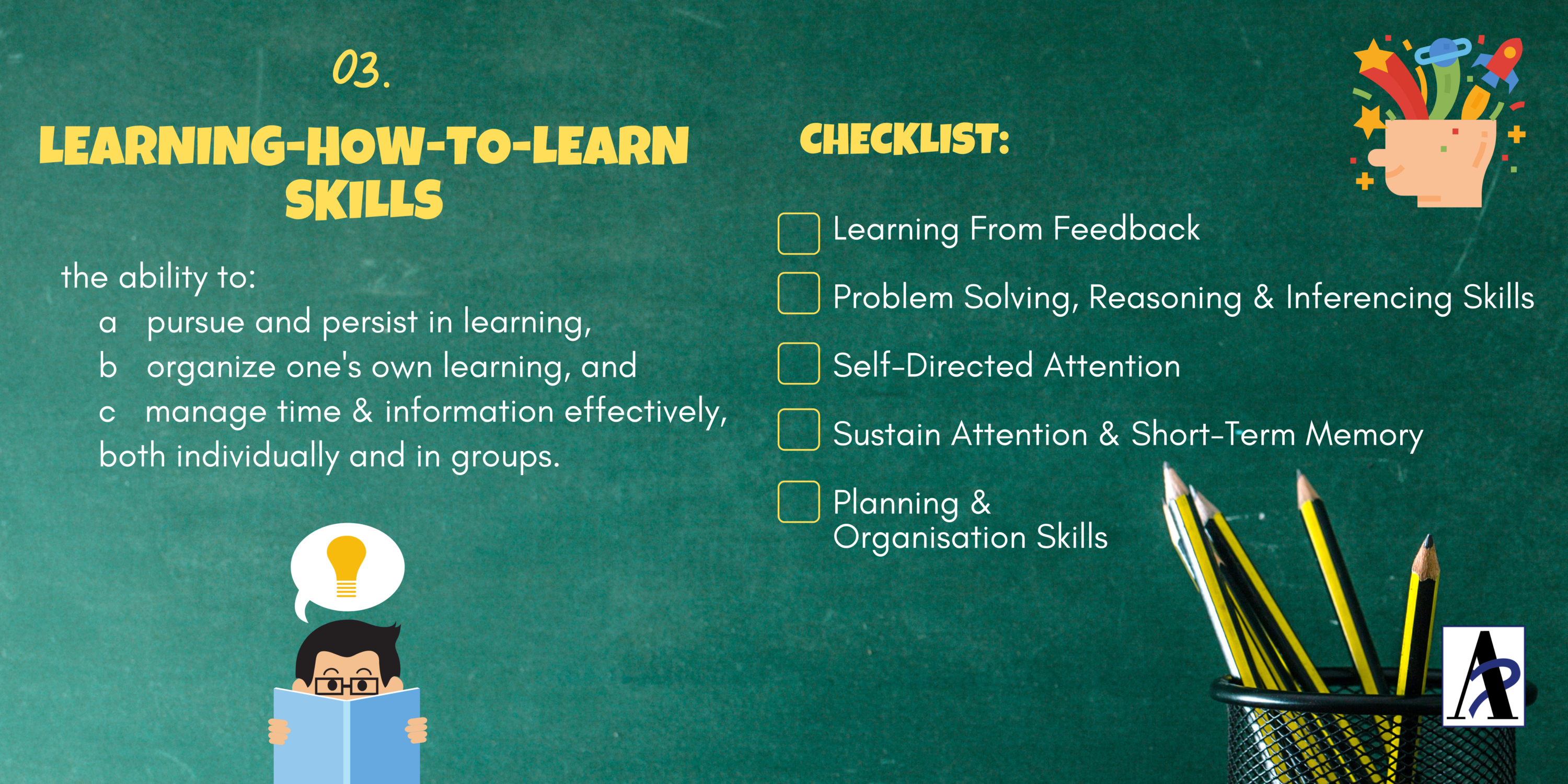
What are learning-how-to-learn skills? Since children with autism are impacted differently by nature, they present unique sets of abilities and various challenges. Their specific learning styles may mean they need a customized and meaningful teaching approach, which may also mean they are not ready to learn in a school setting. The fact that they may not benefit from learning in school at this point in time does not mean they will not eventually be able to learn in school. When a child’s “learning how to learn” skills are developed in other pivotal areas, they have a much higher chance of succeeding in school. In short, learning-how-to-learn skills consist of the ability to:
- (a) pursue and persist in learning,
- (b) organize one’s own learning, and
- (c) manage time and information effectively,
both individually and in groups
Certainly, developing learning to learn skills can take time, but it can be achieved if the child is provided with learning opportunities to work on these skills. Some examples of learning to learn skills are persistency, sustaining and self-directing attention, learning from feedback, problem-solving skills, planning and organizational skills, reasoning, and making inferences. When equipped with these pivotal skills, they will navigate through school with greater ease and confidence and hence be more successful in school.
Read articles on Learning-How-To-Learn Skills:
4. Social Skills
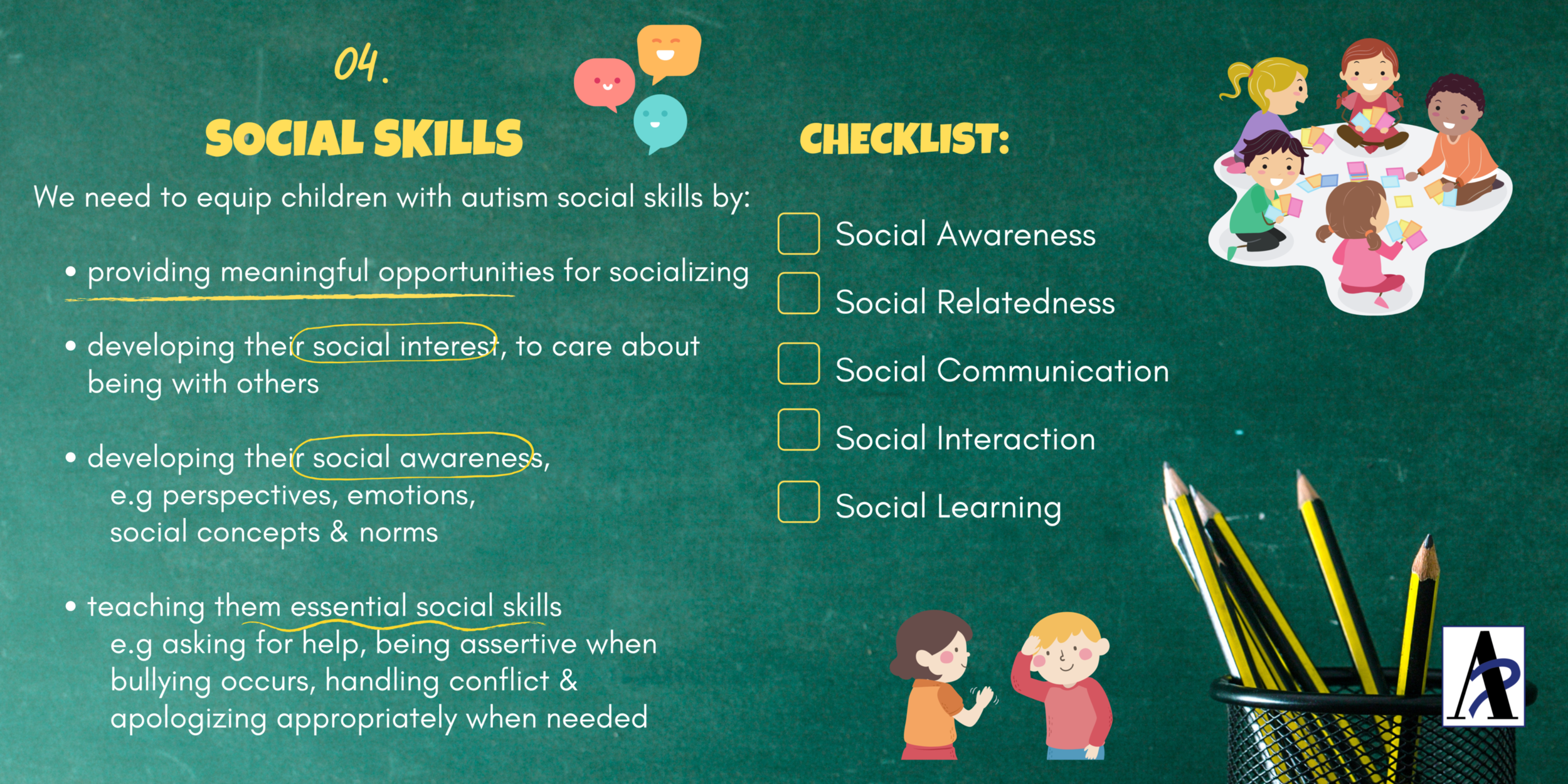
This area needs a special mention, as social situations are often difficult for individuals with autism. Children with autism often find it hard to form meaningful friendships as they do not relate well with others. The social world is complex, and children with autism need to be equipped with social skills. Children with autism cannot learn social skills just by going to school or participating in social settings if those settings are not designed to provide meaningful opportunities to do so. In fact, it may cause stress for them and possibly result in negative social experiences, such as being teased or bullied.
Firstly, they need to begin their learning in a safe conducive environment with a meaningful teaching procedure to help them navigate through the social world. Then, they need to develop social interest, to care about being with others. It is also important for them to develop their social awareness, for example, understanding their own perspectives and those of others, understanding emotions and how to manage them, gaining a deeper insight into social concepts and norms. Apart from social awareness and social interest, they should also be taught essential social skills such as asking for help effectively to become independent, being assertive even when faced with bullying, handling conflict in a socially acceptable way, and apologizing appropriately when needed.
Children with autism desire to be included; they want to be understood and have friends. We need to allow them to have the opportunity to develop social skills and awareness before they are placed in an environment they may not be able to handle. If they do not have the necessary social skills to handle challenging social situations, it could lead to a negative experience.
Read articles on Social Skills:
& Other Developmental Skills
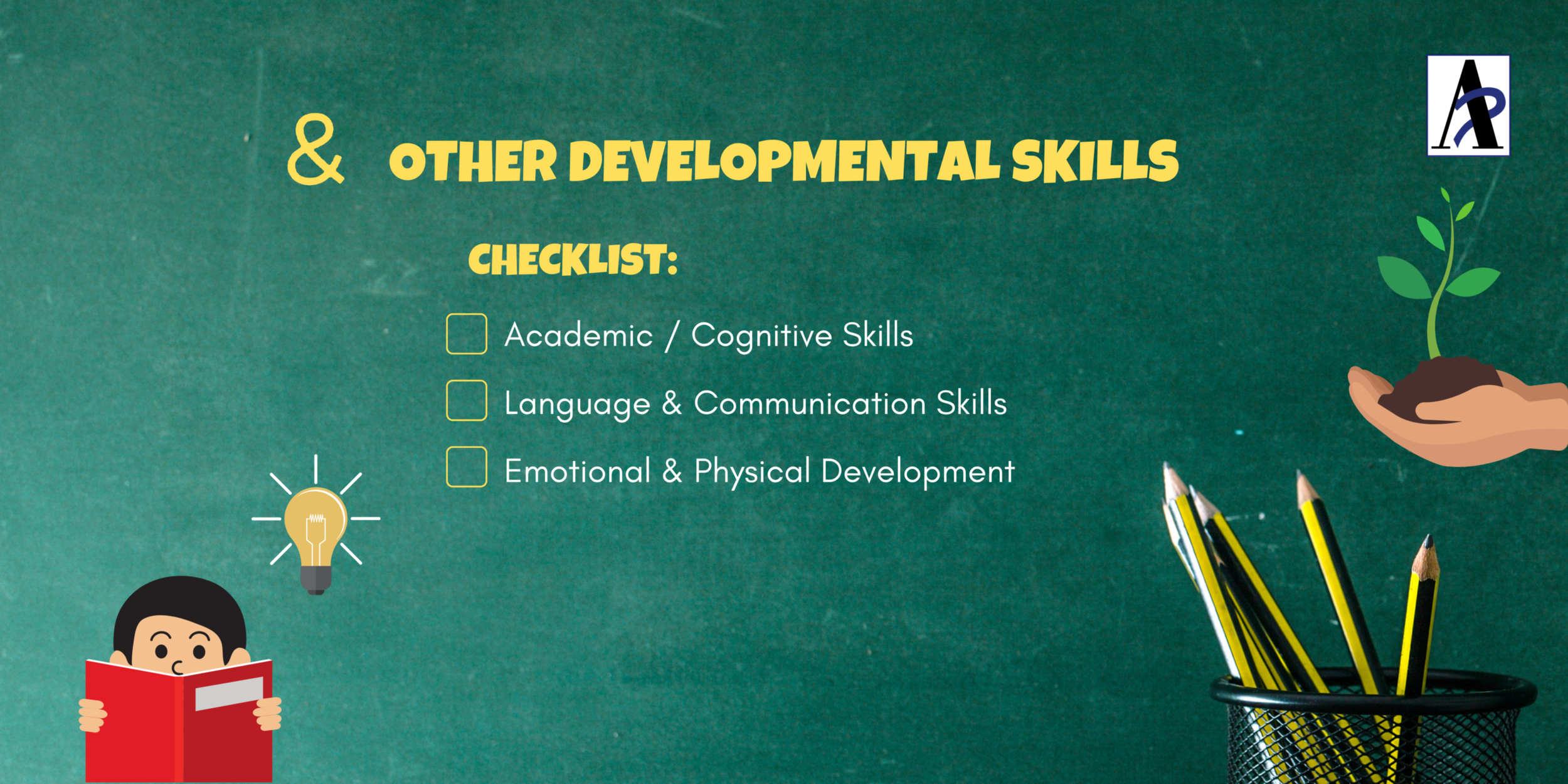
As covered earlier, other developmental skills is also crucial in preparing your child for school. This includes academic and cognitive skills, language and communication skills as well as emotional and physical development.
Making decisions about schools for parents of children with autism is never an easy task. Parents are naturally under pressure to enroll their children in school when their children are of school-going age. However, we have seen over and over again how some children have negative school experiences because they are not ready for school. When this occurs, it causes the parent and child a great deal of stress. The development of a strong foundation in school readiness skills is essential before a child begins school. This foundation can be developed in an early intervention center that uses scientifically-based practices that address the needs and challenges of each child as a way of better preparing them for school.
Other related articles:
Frequently Asked Questions (FAQ)
Here are some guidelines:
1) Begin by researching what are proven treatments and choose a treatment that is widely recognized and scientifically proven. In this way, you are making informed decisions.
2) The next step is to make an appointment to visit the centers that provide this proven treatment. Just having proven treatment does not make it the best place to send your child. Visiting the center will provide you with a better understanding of how the programs are run, how the challenges your child is facing can be addressed, and allow you to see if that is an environment you would like your child to be in. The programs should be individualized to ensure that your child's learning needs are met and addressed.
3) Enrol your child in the program and work closely with the center to help your child.
These areas will encompass the following, not in order of importance:
(1) Learning to learn skills, e.g., attending and sustaining attention in a distracting environment, being able to persist and not give up easily
(2) Behaviors - able to manage and deal with triggers that occur, e.g., denials, waiting
(3) language skills, both receptive and expressive. Language is required to understand the lessons, communicate, and respond (to name a few reasons why language is needed for school).
(4) Social skills, e.g., social interest, social awareness, social communication skills
(5) Independence, e.g., toileting, eating independently, & other critical self-help skills.
At AP, we will guide you with the decision-making by arranging a meeting with you to find out more about your child, do an observation and informal assessment to ascertain if your child is ready for the school readiness group program, and will share our observations and recommendations with you based on all the information we have gathered. If your child is not ready for group learning, your child can develop the missing areas in a 1:1 session to prepare your child for the group program. Initially, your child may do 1:1 sessions, and once your child has attained certain skill sets, he will then be put into a small group to hone other skills on this journey to prepare your child to be ready for a school readiness group program.

